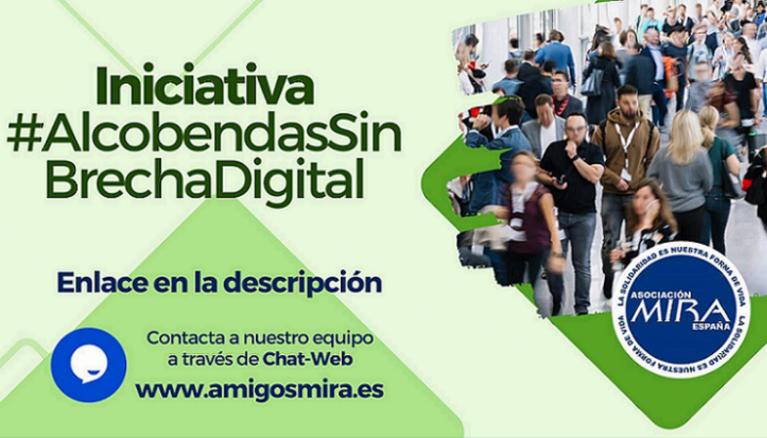Various local initiatives in Spain have involved citizens to identify solutions for the digital gap at the centre of the community problems. They have written manifestos for the digital inclusion of women, migrants, the elderly, and people with disabilities. They are calling the attention of local authorities and neighbours on the necessity to close the gap. However, the lack of basic digital skills and of access to the Internet are to some extent still pending questions not just in Spain, but on a European scale as well. Local citizen initiatives are the first step of a larger instrument to demand better access and knowledge to use digital services.
According to recent assessments, the digital divide in Europe remains large: the EU citizens with basic digital skills still account for only 58% of the population in 2020. Moreover, 9.5% of the EU citizens on average have never accessed the Internet. 54% of them are people with disabilities, which represents a ratio of one in three of them. However, Northern European countries noticeably differ from Eastern and Southern European countries. In Sweden, Denmark, the Netherlands, and Luxembourg digital illiteracy remains at less than three percent of the population. However, in Bulgaria, Greece, Portugal, and Croatia, it ranges between 18% and 24%. In Spain, this proportion is 8% on average.
In Spain, various municipalities have developed popular initiatives in the context of social participation programs, projects, and workshops. People themselves have joined together seeking solutions against the digital gap, considered by them as one of the most relevant problems of their communities. For instance, a community of neighbours located in Alcobendas (north of Madrid) participated in a project supported by the City Council called “Train, Organize and Act”. In this framework, they have written a “manifesto for the strengthening of telematic services” to demand better digital services in the town. They intend to encourage all citizens to work together to achieve these goals.
Meanwhile, in Valencia, an industrial city of almost two million inhabitants, a cluster of 30 NGOs have joined together to promote the initiative “Internet is a right”. They have written a “manifesto for the digital inclusion” to claim measures to close the digital divide and solve the gender inequity problem to access and use the digital services.
Clearly, these local initiatives raise awareness on the importance of the digital divide to human development, inclusiveness, and the improvement of digital competences. These manifestos deal with the same problem although they were spontaneously proposed by two different sectors of society.
Such manifestos inspire more awareness but lack the concrete actions to be implemented by the governments, which could be achieved efficiently through a European citizens’ initiative. The digital gap dimension in the region may be the occasion to design a more extensive proposal, considering that the scope and extent of digital rights exceed the national borders and involve a European-based digital network. Furthermore, in the current context, the objective of “a more digital and inclusive society” at the center of the European Pillar of Social Rights points out the necessity to prioritise the design of strategies to eliminate the digital divide in the agenda of the crisis recovery plan.
Additionally, the legal competencies of the European Commission to propose specific measures, such as the creation of special funds or subsidies to the access and use of digital services are motivations to link these local initiatives to a European instrument inspired by citizens’ demands, such as the European Citizens’ Initiative.
Lastly, citizenry from a specified locality – a town, city, or state – of the European territory may lead actions on a European scale based on the rights to access and use the Internet. Thus, comments on an ECI proposal of a digital subsidy to be integrated into the social protection system of each Member State (especially for those who are in situations of social exclusion or risk of poverty) are welcomed.
Contributors
Ana Milena Carranza CarranzaAna Milena Carranza Carranza is a lawyer. She has a Ph.D. in Rule of Law and Global Governance and a Master in Economic Analysis of Law and Public Policies from the University of Salamanca. She is a volunteer researcher at the Association Amigos MIRA España on a number of subjects related to human rights guarantees, digital inclusion and migrant studies.





Leave a comment
To be able to add comments, you need to authenticate or register.Comments